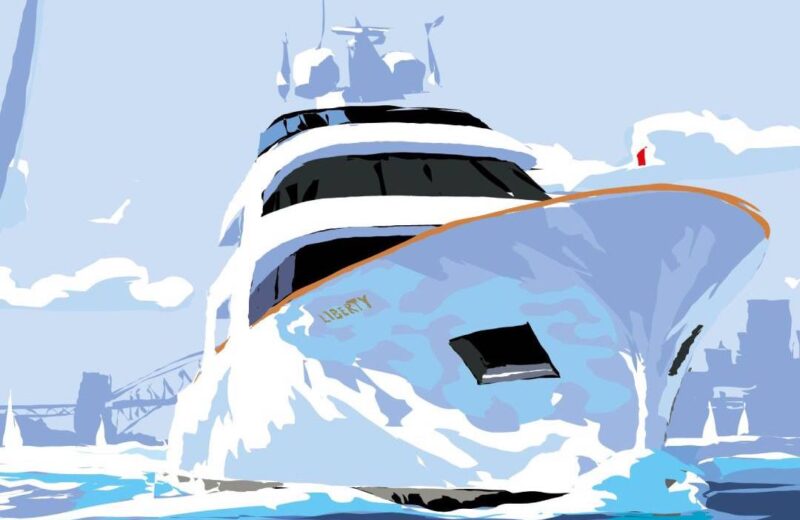Yachting boom: Ensuring the insurers

The lockdowns of the past 18 months or so have given us all time to think and readjust our priorities. Like never before yacht owners and potential purchasers have been giving thought to their work-life balance, the risks of travelling and where in the world can a vacation actually take place? All of this has had a knock-on effect on the market, making yacht insurers’ lives busier than expected.
Mike Wimbridge, managing director, Pantaenius told Superyacht Investor: “I think in the chain of insurance buying people have had a little more time to reflect, rather than maybe just renew year-on-year. Throw into that the fact that some insurance markets are looking at what they write and possibly increasing prices and changing terms and conditions for risks they’re less concerned about.” Wimbridge is clear he is not talking about “bad risks”, but said some underwriters are looking at their portfolios.
With business moving around, people have got more time to quote, owners are also reflecting on what they actually use the boats for, said the Pantaenius director. “This is something we have certainly seen through our business – quote numbers have gone up.”
Speaking to boat dealers and managers, Wimbridge said: “If you can find a yacht on the market at the moment, someone is going to snap it up very, very quickly. And I think that is consistent across the whole insurance segment at present.”
However, insurance has become more expensive on the whole, according to Mike Taylor-West, partner, Private Client & Marine, Partners& Insurance. He told SYI: “It can be up to 10% for claim-free risks, and significantly higher for those with incidents.

The Caribbean continues to be very restricted in the hurricane season and I would forecast that will continue to be so for at least this season and possibly the next. One major UK company market took the decision to cease offering the round robin Med-Caribbean cover both because of the hurricane risk and vessels getting stuck in the zone due to covid.”
Insurance has become more difficult to obtain for certain risks, said Taylor-West, but it doesn’t appear to be a direct result of the pandemic. “Certain motor or sailing catamarans remain not every insurers appetite. Aluminium and composite vessels remain higher cost in repair in partial losses. Major sailing superyachts continue to attract higher terms for carbon rigs. Explorer yachts with ice class will inevitably attract higher premiums for extended cruising range. Whilst passaging the Red Sea remains expensive for those approved as the piracy risk hasn’t gone away.”
In terms of requests regarding new build projects you only have to look at industry press to see the extent to which people are gravitating to yachting, said Wimbridge.
If you take analysis of new builds down to a lower level the trend remains. Wimbridge said talking to Pantaenius’ smaller dealers in the UK, most would buy a limited amount of vessels on speculation to sell. “Talking to one agent a month ago he had 80 to 90 fairly modest boats of which 60 were already sold before they’d even reached his dealership.”
“Unlike events that have happened in the past that are more localised, because this is a local pandemic if you happen to live in Spain then you’re more than likely to be looking at holidaying in Spain this year. Italians are the same and so is the UK,” said Wimbridge.

He anticipates more of the same for the remainder of the year. “I was just listening to the news a second ago and there’s still some uncertainty. I think the level of administrative burden, around booking your trip, testing and possibly quarantining, is going to keep this [activity] moving [at a steady pace].”
SYI was told earlier this month about new owners keeping lawyers at full tilt. It has been strong start to the year in the insurance segment too, but we are not in the quieter months yet. Taylor-West said: “It will be interesting to see whether face to face networking lost in nearly two yacht show cycles bites, for example if Cannes and Monaco Yacht Shows don’t occur again this year.”
Wimbridge hopes new industry entrants will remain once we truly emerge from the pandemic. “One of the things we are very proactive about is ensuring that new owners actually understand the true running costs of a superyacht. There is that rough rule of thumb that you pay 10% of the value per year. Well if you’ve bought a 30-year-old, 40m yacht for $2m you are not going to run that for year for $200,000. And then like with most projects it tends to cost more than you think,” said Wimbridge.
He said has not seen a rise in claims yet as a result of new owners not correctly operating their new yacht. But you can be sure, pandemic or no pandemic, insurers across the segment will hope their clients practice proper social distancing with their yacht and any foreign objects indefinitely.
Subscribe to our free newsletter
For more opinions from Superyacht Investor, subscribe to our email newsletter.

